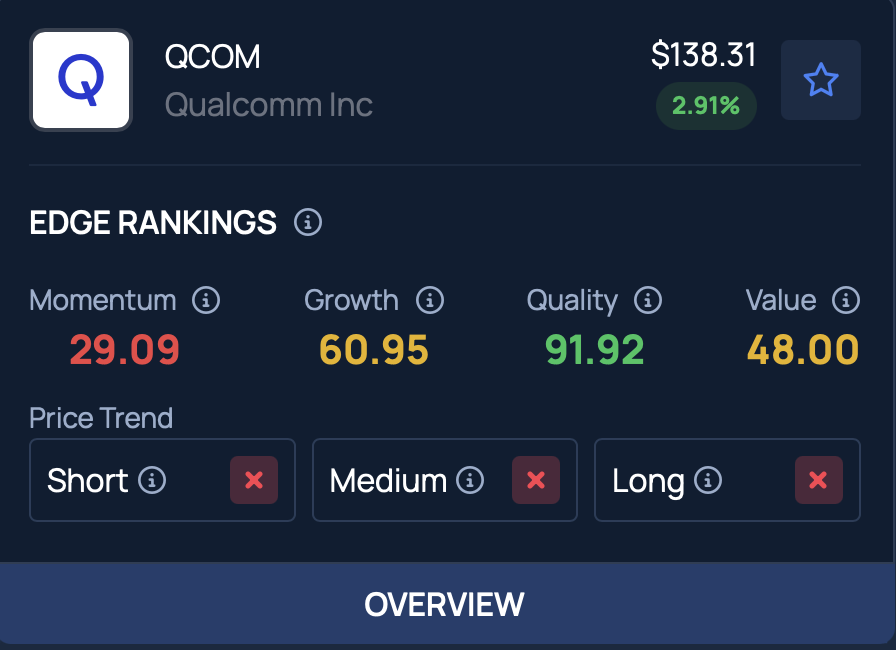On Friday, China’s Common Administration of Customs applied a brand new rule that determines the nation of origin for semiconductor merchandise primarily based on the placement of wafer fabrication — not the place the chips are designed, developed, or packaged.
What Occurred: On account of this growth, chips designed by U.S.-based corporations like Nvidia Company NVDA, Superior Micro Gadgets AMD, and Qualcomm Inc. QCOM however manufactured by foundries in Taiwan, equivalent to Taiwan Semiconductor Manufactoring Co. Ltd TSM and United Microelectronics Company UMC, might be exempt from China’s 125% retaliatory tariffs on U.S. imports, reported Tom’s {Hardware}.
Nevertheless, this rule delivers a blow to U.S. chipmakers like Intel Company INTC, GlobalFoundries GFS, and Texas Devices TXN, which fabricate their chips domestically.
Merchandise from these corporations will now face the total brunt of China’s import tariffs, dramatically impacting their competitiveness within the Chinese language market.
See Additionally: Qualcomm Expands AI Ambitions With Acquisition of VinAI’s Generative AI Division
The China Semiconductor Trade Affiliation (CSIA) issued a discover clarifying that the “nation of origin” for all chips — packaged or unpackaged — might be primarily based solely on the place the wafers have been processed.
As a result of China considers Taiwan a part of its personal territory, chips produced in Taiwanese fabs should not topic to the punitive tariffs, even when designed and offered by American companies.
Why It Issues: This modification successfully divides U.S. semiconductor companies into winners and losers. Designers like Nvidia, AMD, Broadcom Inc. AVGO, and Qualcomm profit from outsourcing manufacturing to Taiwan, which retains their merchandise tariff-free and their entry to China intact.
In the meantime, chipmakers with U.S.-based fabrication operations—equivalent to Intel’s fabs in Arizona and Oregon and GlobalFoundries’ Fab 8 in New York—at the moment are deprived.
The rule bolsters China’s geopolitical stance by treating Taiwan as a home provider and incentivizes extra outsourcing to Taiwanese and Chinese language foundries, the report famous.
It might additionally redirect chip enterprise away from U.S. fabs, pushing world companies to keep away from sourcing from the U.S. to sidestep tariffs.
In a be aware launched Thursday, Goldman Sachs economists, led by Andrew Tilton, warned that the abrupt hike in U.S. tariffs on Chinese language imports — raised to 125% as of April 9 — might considerably influence China’s economic system and put as many as 20 million export-related jobs in danger.
Qualcomm has a progress rating of 60.95, in accordance with Benzinga Edge Inventory Rankings. Click on right here to see the way it stacks up towards corporations like Nvidia, AMD, TSMC, Intel, and others.

Learn Subsequent:
Disclaimer: This content material was partially produced with the assistance of AI instruments and was reviewed and printed by Benzinga editors.
Photograph courtesy: Shutterstock
Market Information and Information dropped at you by Benzinga APIs
© 2025 Benzinga.com. Benzinga doesn’t present funding recommendation. All rights reserved.
